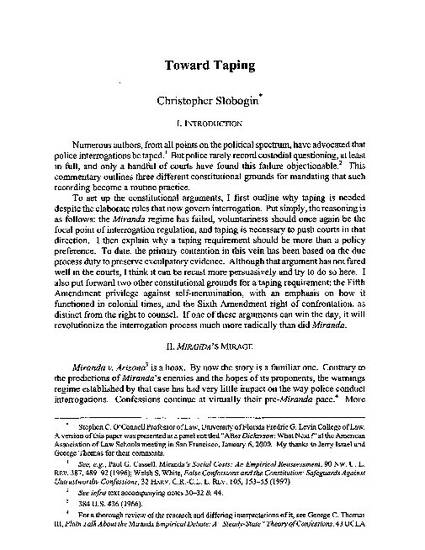
- Miranda,
- police interrogations,
- privacy,
- Sixth Amendment
- Criminal Law,
- Law and
- Privacy Law
Numerous authors, from all points on the political spectrum, have advocated that police interrogations be taped. But police rarely record custodial questioning, at least in full, and only a handful of courts have found this failure objectionable. This commentary outlines three different constitutional grounds for mandating that such recording become a routine practice. To set up the constitutional argument, the article first outlines why taping is needed despite the elaborate rules that now govern interrogation. Put simply, the reasoning is as follows: the Miranda regime has failed, voluntariness should once again be the focal point of interrogation regulation, and taping is the most likely way to move in that direction. The article then explains why a taping requirement should be more than a policy preference. To date, the primary contention in this vein has been based on the due process duty to preserve exculpatory evidence. Although that argument has not fared well in the courts, it can be recast more persuasively and this article does so. It then puts forward two other constitutional grounds for a taping requirement: the Fifth Amendment privilege against self-incrimination, with an emphasis on how it functioned in colonial times, and the Sixth Amendment right of confrontation, as distinct from the right to counsel. If one of these arguments can win the day, it will revolutionize the interrogation process much more radically than did Miranda.
Available at: http://works.bepress.com/christopher-slobogin/44/
